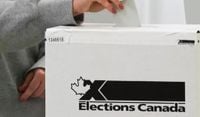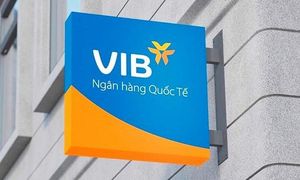On April 28, 2025, Canadians across the nation head to the polls for a historic election, tasked with selecting the government that will navigate the country's interests and sovereignty amid rising tensions with the United States, particularly following Donald Trump's return to the White House. This election comes after a 36-day campaign that has been marked by intense political maneuvering, debates over economic policies, and the looming shadow of American influence.
With approximately 28.5 million eligible voters called to elect 343 Members of Parliament (MPs), the stakes are incredibly high. Polling stations in Quebec will be open from 9:30 a.m. to 9:30 p.m., with Elections Canada anticipating peak voting hours early in the morning and after 4 p.m., while the least busy time is typically from noon to 4 p.m.
The political landscape has shifted dramatically as candidates vie for the confidence of voters. In the riding of Rimouski-La Matapédia, Maxime Blanchette-Joncas of the Bloc Québécois, Alexander Reford of the Liberal Party, and Nancy Joannette of the Conservative Party are all in contention. Blanchette-Joncas previously won a second term in 2021 by a significant margin, but the dynamics could change this election.
Meanwhile, in Gaspésie-Les Îles-de-la-Madeleine-Listuguj, incumbent MP Diane Lebouthillier seeks re-election for a fourth term against Bloquiste Alexis Deschênes and Conservative Jean-Pierre Pigeon. The election in Côte-du-Sud–Rivière-du-Loup–Kataskomiq–Témiscouata is also expected to be competitive as Bernard Généreux, a Conservative MP since 2015, faces off against Liberal Rémi Massé and Bloquiste Diane Sénécal.
As the election unfolds, the presence of Donald Trump has been a constant topic of discussion, with his recent comments about wanting to erase the "artificial line" separating Canada and the U.S. heightening concerns among voters about national sovereignty. Trump’s remarks have forced candidates to address how they would manage relations with the U.S. in this new political climate.
Mark Carney, the Liberal leader and current Prime Minister, who took over from Justin Trudeau just a month before the election, has emphasized the need for a strong mandate to confront Trump’s administration. He has stated, "The relationship between Canada and the United States has irrevocably changed," highlighting the necessity for a government that can protect Canadian interests in negotiations with the U.S.
Carney has positioned himself as a steady hand in the face of economic uncertainty, promising to "reinvent" the Canadian economy. His leadership style and experience as a former governor of the Bank of Canada and the Bank of England are central to his campaign narrative.
On the other hand, Conservative leader Pierre Poilievre has attempted to frame the election as a referendum on the Liberal government’s decade-long record. He has called for a return to responsible governance and economic reform, urging voters to reject what he describes as "irresponsible debt and rising costs" associated with the current administration.
Jagmeet Singh, leader of the New Democratic Party (NDP), has argued for a minority government that would allow the NDP to balance the power dynamics in Parliament. He has emphasized the importance of social programs and investments in healthcare, asserting that the NDP is essential to prevent cuts to services that Canadians rely on.
The Bloc Québécois, led by Yves-François Blanchet, has focused on defending Quebec's interests, with Blanchet predicting a tight race in several ridings. He has encouraged voters to support a strong Bloc presence in Parliament to ensure that Quebec's voice is heard.
As of April 25, 2025, advance voting has seen significant turnout, with more than seven million Canadians casting their ballots early, a record participation rate. This surge in advance voting is indicative of a heightened political engagement among Canadians, driven by the pressing issues at stake.
In the riding of Trois-Rivières, René Villemure of the Bloc Québécois is battling to retain his seat after recovering from kidney surgery. His competition includes Conservative Yves Lévesque and Liberal Caroline Desrochers, who has entered the race with a strong campaign strategy.
In Berthier-Maskinongé, Yves Perron, the incumbent Bloc Québécois MP, is also running for re-election, with nearly 22,000 advance votes registered by April 25. This riding, along with Saint-Maurice-Champlain, where incumbent François-Philippe Champagne of the Liberal Party seeks to maintain his position, has been a focus of intense campaigning.
As the results begin to flow in after the polls close, the Canadian electorate will reveal whether they have opted for continuity with the Liberals, a shift towards the Conservatives, or a more progressive agenda with the NDP. The outcome will not only shape the next government but also set the tone for Canada’s approach to its most significant trading partner in an era of uncertainty.
The final results are expected to be announced a few hours after voting concludes, with Canadians eager to see how their choices will influence the future of their country in the face of external pressures.





